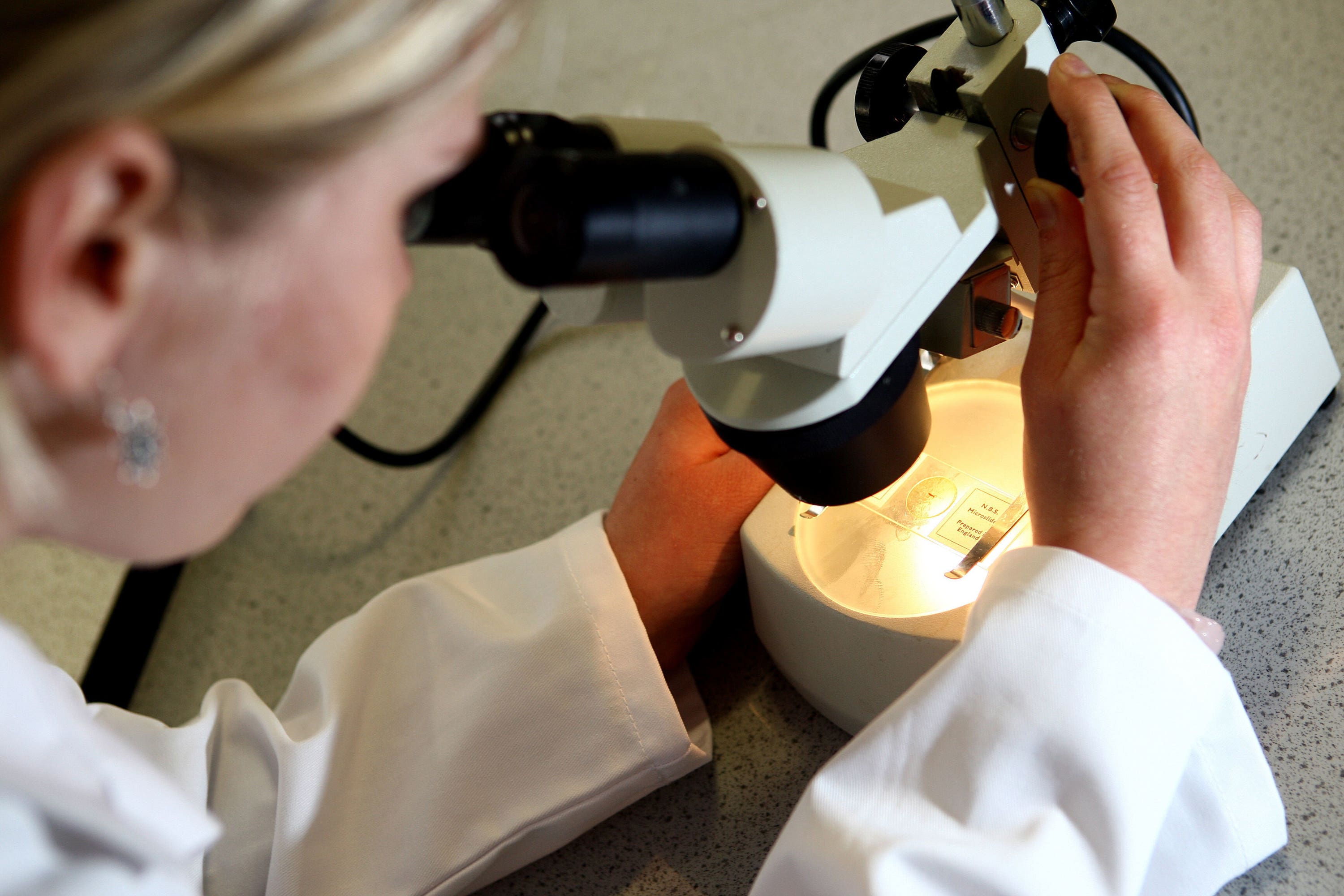Unborn babies use ‘greedy’ father gene to get more food from mothers – study
University of Cambridge scientists found the foetus controls its mother’s metabolism so the two are in a nutritional tug of war.

Your support helps us to tell the story
From reproductive rights to climate change to Big Tech, The Independent is on the ground when the story is developing. Whether it's investigating the financials of Elon Musk's pro-Trump PAC or producing our latest documentary, 'The A Word', which shines a light on the American women fighting for reproductive rights, we know how important it is to parse out the facts from the messaging.
At such a critical moment in US history, we need reporters on the ground. Your donation allows us to keep sending journalists to speak to both sides of the story.
The Independent is trusted by Americans across the entire political spectrum. And unlike many other quality news outlets, we choose not to lock Americans out of our reporting and analysis with paywalls. We believe quality journalism should be available to everyone, paid for by those who can afford it.
Your support makes all the difference.Unborn babies use a “greedy” gene from father to remote-control their mother into feeding them extra food, new research suggests.
University of Cambridge scientists found that the foetus controls its mother’s metabolism so the two are in a nutritional tug of war.
The mother’s body wants the baby to survive but needs to keep enough glucose and fats circulating in her system for her own health, to be able to deliver the baby, breastfeed and to reproduce again.
Genes controlled by the father are ‘greedy’ and ‘selfish’ and will tend to manipulate maternal resources for the benefit of the foetuses, so to grow them big and fittest
Amanda Sferruzzi-Perri, Professor in Foetal and Placental Physiology, a Fellow of St John’s College and co-senior author of the paper, said: “It’s the first direct evidence that a gene inherited from the father is signalling to the mother to divert nutrients to the foetus.”
Dr Miguel Constancia, MRC investigator based at the Wellcome-MRC Institute of Metabolic Science and co-senior author of the paper, said: “The baby’s remote control system is operated by genes that can be switched on or off depending on whether they are a ‘dad’s’ or ‘mum’s’ gene’, the so-called imprinted genes.
“Genes controlled by the father are ‘greedy’ and ‘selfish’ and will tend to manipulate maternal resources for the benefit of the foetuses, so to grow them big and fittest.
“Although pregnancy is largely co-operative, there is a big arena for potential conflict between the mother and the baby, with imprinted genes and the placenta thought to play key roles.”
The new study looked at how the placenta communicates with the mother through the release of hormones so she can accommodate her baby’s growth.
In pregnant mice, scientists selectively altered the signalling cells in the placenta that tell mothers to allocate nutrients to her developing foetuses.
The baby’s genes controlled by the father tend to promote foetal growth and those controlled by the mother tend to limit foetal growth, experts say.
Professor Sferruzzi-Perri explained: “Those genes from the mother that limit foetal growth are thought to be a mother’s way of ensuring her survival, so she doesn’t have a baby that takes all the nutrients and is too big and challenging to birth.
“The mother also has a chance of having subsequent pregnancies potentially with different males in the future to pass on her genes more widely.”
In the study researchers deleted the expression of an important gene called Igf2, which provides instructions for making a protein called ‘Insulin Like Growth Factor 2’.
Similar to the hormone insulin, which is responsible for making and controlling glucose levels in our circulation, the gene promotes foetal growth and plays a key part in the development of tissues including the placenta, liver and brain.
Dr Jorge Lopez-Tello, a lead author of the study based at Cambridge’s department of physiology, development and neuroscience, said: “If the function of Igf2 from the father is switched off in signalling cells, the mother doesn’t make enough amounts of glucose and lipids – fats – available in her circulation.
“These nutrients, therefore, reach the foetus in insufficient amounts and the foetus doesn’t grow properly.”
The scientists found that deleting the gene also affects production of other hormones that modulate the way the mother’s pancreas produces insulin, and how her liver and other metabolic organs respond.
Babies with Igf2 gene defects can be overgrown or growth-stunted.
And the researchers say that until now, it was not known that part of the gene’s role is to regulate signalling to the mother to allocate nutrients to the unborn child.
The mice studied were smaller at birth and their offspring showed early signs of diabetes and obesity in later life.
Professor Sferruzzi-Perri said: “Our research highlights how important the controlled allocation of nutrients to the foetus is for the lifelong health of the offspring, and the direct role the placenta plays.
“The placenta is an amazing organ.
“At the end of pregnancy, the placenta is delivered by the mother, but the memories of how the placenta was functioning leaves a lasting legacy on the way those foetal organs have developed and then how they’re going to function through life.”
The findings are published in the Cell Metabolism journal.